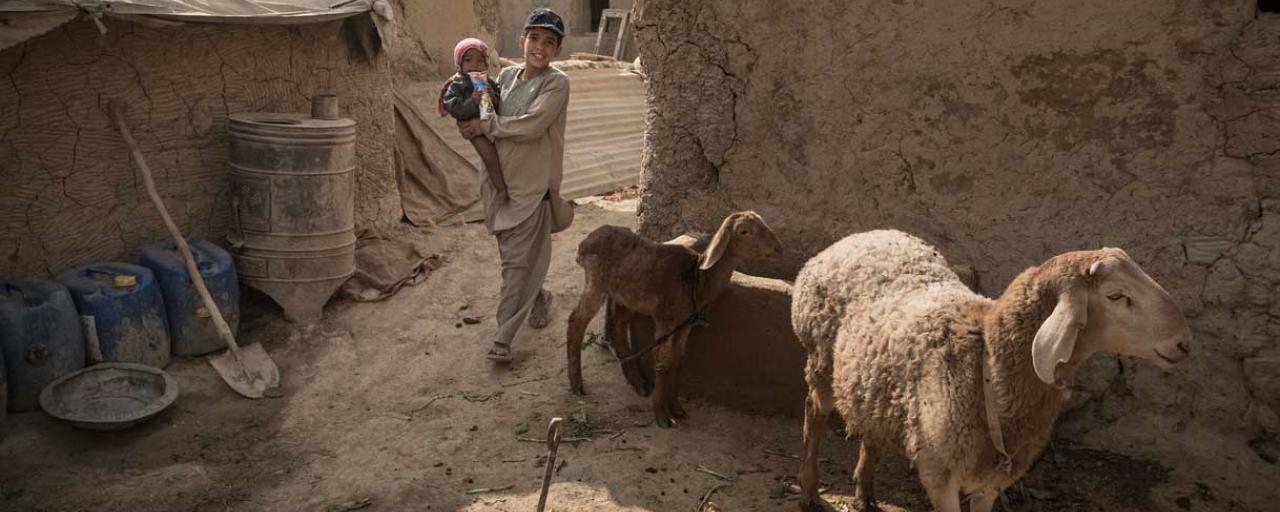|
Written by Aaron White, 24-7 Prayer Canada and part of the IAFR Canada team. “Unless you have lived there, it is impossible to imagine.”
These are the words of Sayed Towfiq, a 27 year old Afghani man who came as a refugee to Canada nearly three years ago. As he describes his life’s journey to me, it almost is impossible to imagine. His father, a doctor, had to flee Afghanistan with his family in 1999 because the Taliban had taken control of the country. Sayed’s family are Shia Muslim, a targeted minority under Taliban rule. They had endured in their home country for three years, but eventually his father was caught and jailed for a year. When he was released he was told that if they did not leave, his family would be killed. And if they ever came back, they would be killed. So they fled, first to Pakistan, then to Iran, where Sayed and his family lived for the next seventeen years. In Iran they could speak the language and practice their faith in peace. But, says Sayed, “Iran is not good with immigrants.” Immigrants cannot own property, cannot even purchase a phonecard, and definitely cannot get permanent residency. Every year his father had to renew his temporary residence card and his right to work as a doctor. His father’s essential work meant that the family would also be allowed to stay in the country. That changed when Sayed turned 22. At that age Iran determines that the son can no longer be covered by the father’s temporary residence permit, and would not issue Sayed with one either. They told him he must go back to Afghanistan, which he knew would end with his death. So in 2018 Sayed began a long and dangerous journey through Turkey, Greece, Italy, France, Germany, Denmark, Sweden, Norway and Iceland. Each border crossing was a risk, but less of a risk than returning to a country in the chaos of war. The journey took him a full year, until he was finally able to board a flight to Vancouver, Canada in 2019. He spent the first two weeks in immigration detention, until his family were able to send through his documentation. Few if any countries will offer a travel visa to someone with an Afghanistan passport, but having arrived in Canada, he was able to make his claim as a refugee. Sayed spoke no English when he arrived, but is now able to converse and to express his great desires. For himself, he seeks to be educated, to learn English better, and to carry on his work as a carpenter. He says that the situation in Canada is so much better for refugees and immigrants than anywhere else he has been, and he is incredibly thankful. He now awaits his permanent residence card. But his desires, hopes and dreams are not primarily for himself. His family is still in Iran, and two months ago tragedy struck. HIs father, the doctor who had been caring for Covid-19 patients in Iran, himself contracted Covid-19 and died. This is devastating to the family, but also carries another deadly consequence: the covering Sayed’s mother and two sisters had received from their father was removed upon his death. They have been given six months to leave Iran and return to Afghanistan. As Sayed tells me this, the pain and fear are clearly written upon his face. “Return to Afghanistan, totally controlled by the Taliban? No, this is impossible.” Sayed explains the danger. In the first place, their family was told they would be killed if they returned. But even if this were not the case, Sayed paints a picture of how dangerous it is for women right now in Afghanistan. “In Canada, it is good. Men and women work together. Women have rights. In Afghanistan, no, this is not allowed. Everything is for men, women have no power.” He tells me again that unless I had lived there, I simply could not imagine how it is. His mother and sisters have no home to go to, no means of support, no men left in the family who could possibly help them. And they now have four months left before they are sent back. The UN does not have a strong presence in Iran, a closed country, so they cannot get help there. When Sayed asked for advice from his friends who had also been refugees, they told him, “Talk to the Church. They can tell your story, and maybe someone can help. Maybe a Church can sponsor your mother and sisters, and keep them from danger.” This is that story, that cry for help. It is true, I cannot imagine the situation Sayed and his family are in. I cannot imagine the hopelessness and fear, the impossible choices, how I would feel and what I would do if presented with the same situation. Sayed told me that he is praying, and asked me to pray as well, which I do with a good will. Will you pray too? More information about Canada's current response to Afghan refugees: READ HERE
0 Comments
|
WELCOME!
Our vision is to help people survive and recover from forced displacement. We do this together with the church, both globally, and locally in Canada. Archives
May 2024
Categories |
ABOUT IAFR.CA |
OPPORTUNITIES |
AFFILIATES
|
CONTACTIAFR Canada
374 Sheppard Ave E Toronto, ON M2N 3B6 [email protected] Please Note: IAFR Canada does not sponsor people to resettle in Canada. You may want to contact one of Canada's sponsorship agreement holders. |
|
*IAFR Canada is a distinct organization from IAFR USA
All photos on this website are by IAFR unless otherwise noted |
© 2020 International Association For Refugees Canada


 RSS Feed
RSS Feed